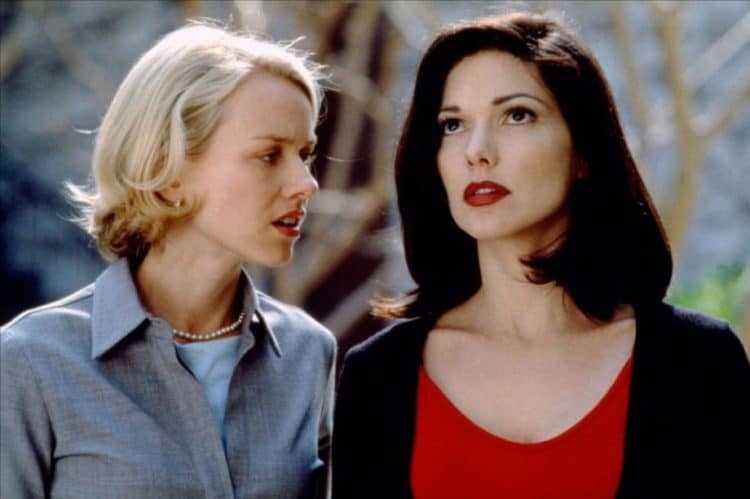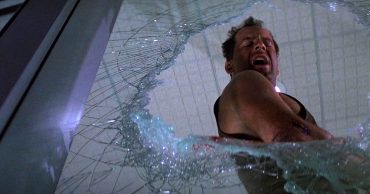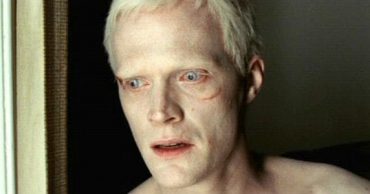
Luis Bunuel once said that “cinema is a filter,” a filter that allows viewers to strain out the bits and pieces of the narrative that resonate with them the most, and discard the rest of the story. Bunuel was a surrealist, and his pioneering efforts helped to pave the way of his contemporary successor in this filmmaking style, David Lynch. Lynch is know to millions for his quirky accent, inflection of words, and wardrobes, but inside of this odd, American nostalgia demeanor exists one of the most searing and probing of all modern filmmakers. In a career spanning 10 feature films, numerous short films, the iconic TV series Twin Peaks, abstract paintings, and now, daily weather reports on his YouTube channel, Lynch’s unique and singular contributions to popular culture have inspired millions to appreciate the importance of subversive art. But his films have arguably left the strongest impression. Any ranking should take into account a film’s impact, it’s legacy to the artform, and the influence it inspires in future filmmakers, which is where this ranking gathers its ordering.
1. Blue Velvet (1986)
Blue Velvet is a film that shocked audiences in what was largely a conservative era for America in the 1980s. It is a film that is both neo-noir and unflinching drama; bizarrely humorous at times, yet terminally weird and singularly unique in Lynch’s burgeoning trademark style. Even the film’s many detractors–many of whom were simply clutching their pearls in offense to the film’s uncompromising nature for showing subversive depravity within the confines of well-manicured lawns and white picket fences–were unable to deny the aesthetic and tone of the film were unlike anything ever seen before in mainstream cinemas.
2. Mulholland Dr. (2001)
Although strange, Blue Velvet was rooted in narrative storytelling common with feature films, but once Lynch was allowed to unleash his vision thanks to that film’s success, he begin experimenting heavily with abstract dream imagery. His films following Blue Velvet would be met with mixed reviews based on this new style, but then everything came full circle with 2001’s Mulholland Dr. Here is a film that is almost entirely a dream sequence before it quickly drops back into the real world of the dreaming protagonist–a reality she likely wishes to escape. The film maintains a mesmerizing hold on the viewer and never lets up.
3. Eraserhead (1977)
Before his first film, Eraserhead, which took years to make, Lynch made several successful short films that were almost entirely abstract and surreal. But nothing quite prepared midnight movie audiences for Eraserhead once it arrived in the late-1970s. The only simple description for the film for the point of a brief summary is to say that it is about a man living in a sterile, desolate landscape, his mutant baby, a woman with large cheeks that lives in his radiator, and non-stop surrealist imagery. All of Lynch’s films have hidden meanings rooted in the various symbolism, metaphors, and allegory that comprise his visuals, and Eraserhead’s message spells bad news for new fathers everywhere.
4. Wild at Heart (1990)
Lynch’s first film after the success of Blue Velvet was a road trip movie from hell titled Wild at Heart. Starring Nicolas Cage and Laura Dern, the narrative is filled with nightmarish imagery with a Wizard of Oz theme, but is easy-to-follow in contrast to latter Lynch works. Grasping the pint or message of the film is no easy feat, but it can be said that Lynch is perhaps displaying a commentary on the hypocritical social structure that defines America. The world is a dog-eat-dog place, but as long as you put on a good show in public and tick the right boxes, you can expect to emerge victorious after the fight is finished.
5. The Straight Story (1999)
A G-rated, Wat Disney film from David Lynch was the wide consensus when The Straight Story hit theaters in the fall of 1999. But this was no kid-focused film as it confronted the pains and frustrations of growing old, remembering precious memories from the past, stubbornness, and reconciling with estranged family due in large part to these certainties we all face if we are lucky enough to make it to old age. Although Alvin Straight likely did not have to ride his riding mow across state to visit his estranged, ill brother, the point of the film is to explore the perseverance of the human spirit.
6. The Elephant Man (1980)
Lynch’s second feature was one of only a handful of linear, direct narrative films that required little work on the part of the viewer to follow the story. Based on the true story of John Merrick, a deformed man who was raised and exploited in Victorian England circus troupes, the film is beautiful to look at and emotionally devastating. Lynch leaves the surrealist imagery out of this outing and the results are still profound and memorable.
7. Inland Empire (2006)
Lynch’s final film so far was 2006’s Inland Empire. There is no coherent plot to follow in this film, and the resulting experience is completely up to the viewer when making out what the non-stop 3 hours of surrealist imagery means to them. This movie is ambitious and intriguing, but can become tedious around the 2 hour mark.
8. Lost Highway (1997)
This film has a large cult following, but it is still one of Lynch’s lesser feature films. The disjointed narrative–which he would explore much better in Mulholland Dr.–is all about the duality of man and the anxiety of living in a surveillance state, but the results are ultimately mixed.
9. Twin Peaks: Fire Walk With Me (1992)
This film serves as a prequel to the TV series. As a prequel, and Laura Palmer’s story, it is superb; it’s also essential for grasping the wider narrative of the Twin Peaks universe, but doesn’t work as a stand alone film.
10. Dune (1984)
Long before Denis Villeneuve’s Dune, there was David Lynch’s version. It’s not a bad film, but it has to come in at the bottom solely because Lynch himself has largely disowned the film since his vision was stifled by the studio.daily weather reports
 Follow Us
Follow Us





